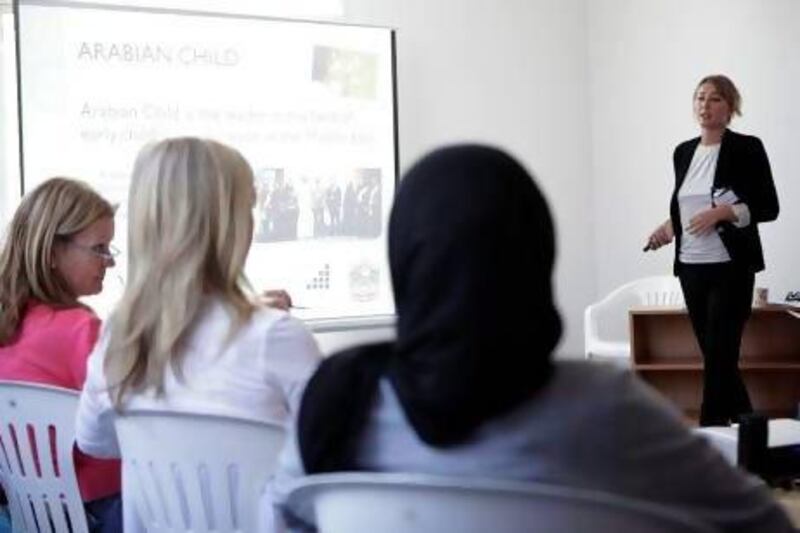DUBAI// Nursery workers face barriers to reporting child abuse and are afraid to do so, a study reveals.
Less than half know who to contact if they do suspect that a youngster is being mistreated.
More than 80 per cent of nursery staff said they were concerned about the potential consequences if they acted on suspicions about a child’s welfare, said Arabian Child, the Dubai-based early childhood consultancy that carried out the research.
“They’re afraid of what will happen to them if they do take action,” said Samia Kazi, chief operating officer of Arabian Child.
“Another one they are afraid of is what if they’re wrong ... and maybe they’ll harm the child more than help the child.”
The study, including a survey of 57 nursery workers, recommends more child-protection training and says the UAE’s 320 licensed nurseries have an important role in identifying mistreatment.
In most cases, the abuser is someone that the child knows and trusts.
Nursery workers are a first “point of contact” for children outside their home and could catch abuse early, the study noted.
“The children are young and they need someone to look out for them,” said Kieny Watts, general manager of Hummingbird Early Learning Centre in Dubai.
The study also urges nurseries to create written policies on the topic.
“Every nursery should have a child-protection reporting policy that indicates the roles and responsibilities of each staff member,” Ms Kazi said.
Hummingbird created a child-protection policy when it opened, Ms Watts said. Her employees watch for signs of abuse or neglect.
“If there is a child we think has suspicious bruises, or they cringe away when you’re about to hug them, or when you’re doing a toilet change and you see some things you are not supposed to, then we definitely check,” she said.
Arabian Child conducted the survey this year to support the implementation of Wadeema’s Law, a draft that would create a nationwide child-protection system. The legislation was approved by the Cabinet last month and awaits debate by the Federal National Council.
“We’re very excited about all of these groundbreaking differences happening in the UAE,” Ms Kazi said.
Wadeema’s Law would make it mandatory for teachers, doctors and others who deal with children to report suspected cases of abuse and neglect.
But for now, without a unified system, there is no clear procedure.
“Where do you go? What do you do?” asked Asma Maladwala, director of Inspire Children’s Nursery in Dubai. “What’s going to happen if you contact X person? What are they going to do?”
About two thirds of the nursery workers in the Arabian Child survey said they did not receive enough child-protection training.
“We do talk about it but more training and more awareness is definitely very welcome,” Ms Maladwala said. “With the new law that was just signed it’s absolutely a step in the right direction.”
Moza Al Shoomi, director of the Ministry of Social Affairs child department, said schoolteachers must also be trained to recognise and report signs of child abuse. If a parent is mistreating their child, they are not likely to enrol them at a nursery, Ms Al Shoomi said: “They leave him at home. But the problem is children in the school,” she said.
But Anita Akkawi, who studied child protection for her master’s thesis at Dubai School of Government, said nurseries are a good place to begin.
"This is where it starts," she said. "It should start from the nurseries going all the way up to schools."
vnereim@thenational.ae






